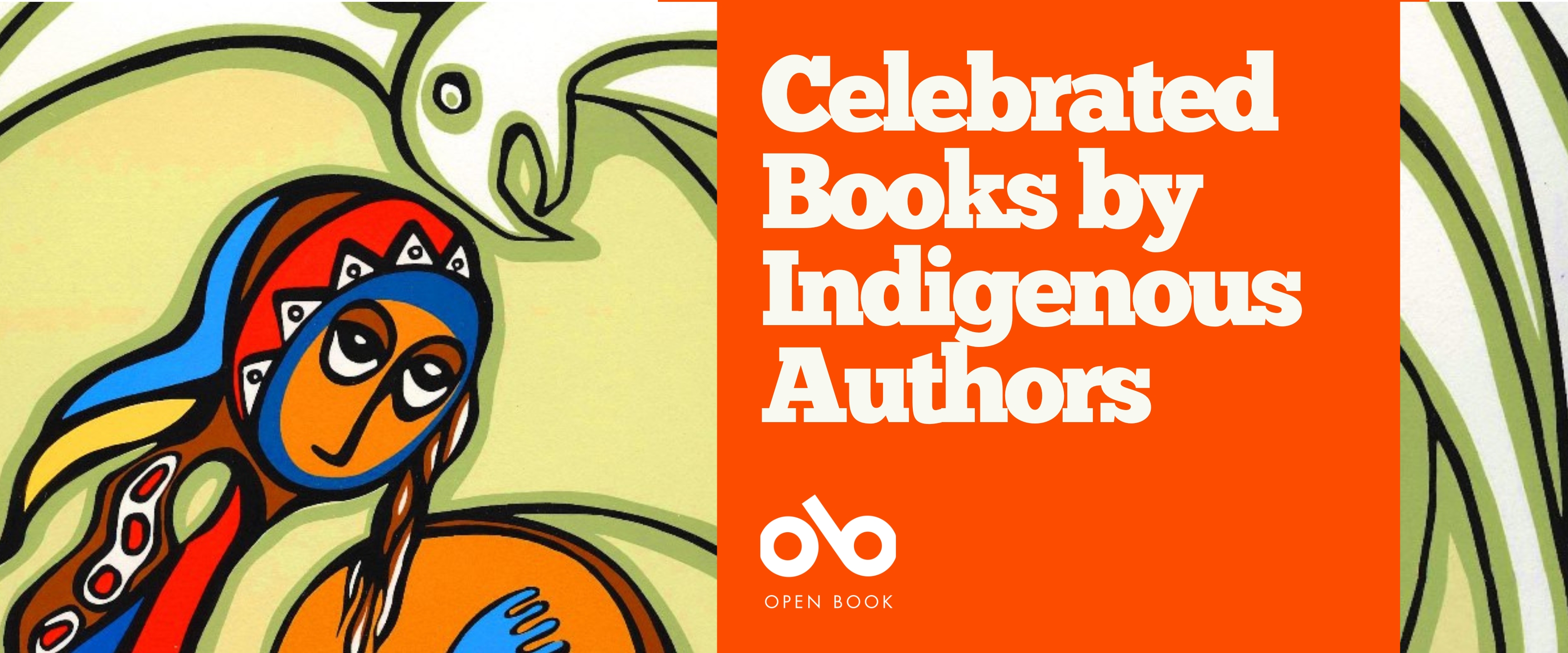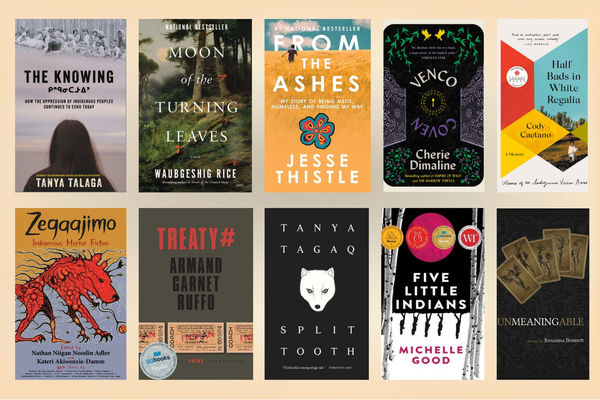Celebrating Works by Indigenous Authors in Ontario and Throughout Turtle Island
Modern Indigenous literature published in Ontario and throughout Turtle Island is alive with innovation, resistance, lyricism, and urgency. And the authors we're highlighting. today carry forward traditions, reclaim histories, and push open doors for what stories truly can be. Here are ten remarkable Indigenous authors and what they’ve been up to lately.
Tanya Talaga
Acclaimed journalist and storyteller Tanya Talaga brings her signature blend of personal narrative and investigative depth to her latest book The Knowing (HarperCollins). Drawing from her family history, Talaga traces the story of her great-great-grandmother and unearths truths about government and church systems that worked to erase Indigenous lives. Talaga is also the award-winning author of Seven Fallen Feathers and All Our Relations, books that shifted national conversations about justice, reconciliation, and the future of Indigenous communities.
Waubgeshig Rice
An Anishinaabe writer from Wasauksing First Nation, Waubgeshig Rice has captivated readers with his post-apocalyptic vision of community survival. His 2023 novel Moon of the Turning Leaves follows the events of his bestseller Moon of the Crusted Snow (ECW Press), as survivors search for a new home rooted in traditional lands. Rice, also a journalist and broadcaster, continues to be celebrated for his storytelling that merges urgency with cultural renewal.
Jesse Thistle
Métis-Cree scholar and writer Jesse Thistle first reached a wide readership with From the Ashes, his searing memoir of addiction, homelessness, and reclamation. The book became a bestseller, earned multiple awards, and was championed on Canada Reads. Thistle’s work has inspired countless readers with its honesty and its call for dignity and justice. He now teaches at York University and continues to shape national discussions around memory, Métis identity, and healing.
Cherie Dimaline
Cherie Dimaline of the Georgian Bay Métis Community has become one of Canada’s most recognized Indigenous voices. Her breakout YA novel The Marrow Thieves (Cormorant/DCB) won the Governor General’s Award and is now taught in schools across the country. More recently, she returned with VenCo, a wickedly subversive, deliciously imaginative, deeply feminist novel of contemporary witches on the rise. Dimaline’s sharp imagination and fierce storytelling continue to make her a literary force.
Cody Caetano
Toronto writer Cody Caetano burst onto the scene with his memoir Half-Bads in White Regalia (Penguin Random House), published in 2022. Mixing humour with unflinching truth, Caetano recounts growing up the son of a Portuguese father and an Anishinaabe mother who was a Sixties Scoop survivor. The book won the Indigenous Voices Award for prose and was praised for its wit and originality. Caetano is an exciting new talent carving out his own space in Canadian literature.
Your CanLit News
Subscribe to Open Book’s newsletter to get local book events, literary content, writing tips, and more in your inbox
Kateri Akiwenzie-Damm
Poet, editor, and publisher Kateri Akiwenzie-Damm has been a cornerstone of Indigenous literature in Ontario for decades. She founded Kegedonce Press, one of the first Indigenous-run publishers in Canada, giving space to countless Indigenous voices. As a writer, her work spans poetry and short fiction, while as an editor she has brought together powerful anthologies, most recently the dark fiction collection Zegaajimo (Kegedonce Press). Her influence reaches far beyond her own books, ensuring Indigenous stories are read and heard widely.
Armand Garnet Ruffo
Armand Garnet Ruffo, of Ojibwe ancestry, is known as both a poet and scholar. His award-winning works include the poetry collection Treaty# (Wolsak & Wynn), which examines the history and present reality of treaties in Canada, and a biography of Norval Morrisseau. Ruffo’s blend of poetry, academic writing, and storytelling has made him one of the most respected literary figures of his generation. He currently teaches at Queen’s University, inspiring the next wave of Indigenous voices.
Tanya Tagaq
Inuk throat singer and author Tanya Tagaq stunned the literary world with Split Tooth (Penguin Random House) a genre-defying work that blends memoir, poetry, and Inuit cosmology. The book won the Indigenous Voices Award and was a finalist for the Giller Prize. While best known for her music, Tagaq’s written work has proven equally powerful, breaking conventions and bringing Indigenous experiences to the forefront in ways both raw and transformative.
Michelle Good
Cree writer Michelle Good became a household name with Five Little Indians (HarperCollins Canada), her debut novel that chronicles the lives of residential school survivors as they navigate adulthood. The book won the Governor General’s Literary Award and Canada Reads in 2022. Good followed with Truth Telling: Seven Conversations About Indigenous Life in Canada, a nonfiction work addressing ongoing colonial structures. Her voice is one of fierce clarity, advocating for justice through storytelling.
Roxanna Bennett
Poet Roxanna Bennett, based in Ontario, has carved a reputation as one of the country’s most original lyric voices. Their collections Unmeaningable and The Untranslatable I (Gordon Hill Press/The Porcupine's Quill) explore disability, queerness, and embodiment with breathtaking precision. Bennett’s work has been awarded the Raymond Souster Award and continues to push the boundaries of Canadian poetry.
These authors represent only a fraction of the brilliance in Indigenous writing today. From memoir to speculative fiction, from poetry to powerful essays, they are ensuring that Indigenous stories are read not only in Ontario classrooms and book clubs but across the world. Their words remind us that Indigenous literatures are living, urgent, and essential.




